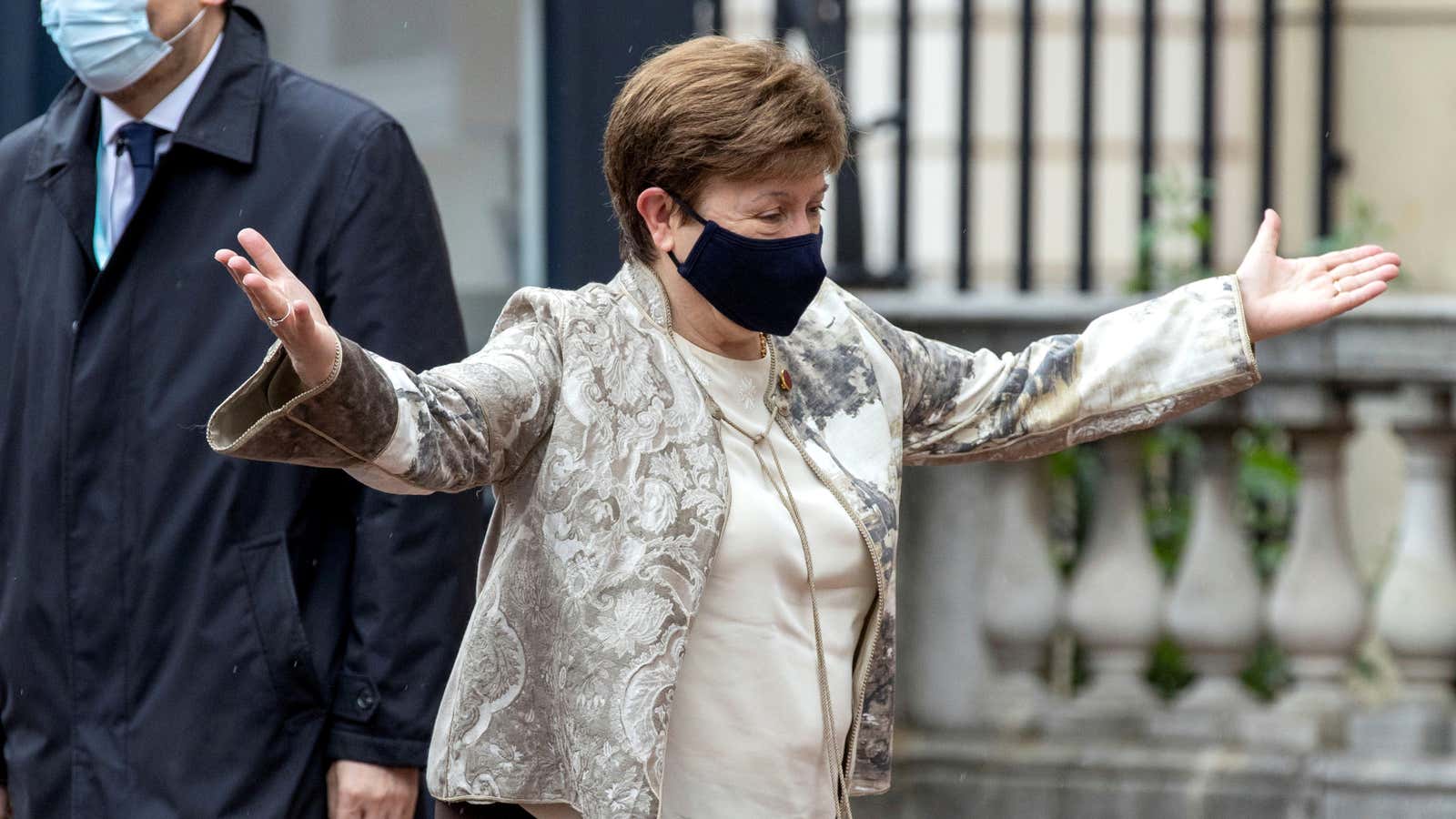It’s never a good sign when a bank gets caught fudging its numbers, but the revelation of the World Bank’s manipulation of an influential index also highlights the challenge of forging a global consensus for the economy in the 21st century.
The World Bank came clean last week after hiring an external law firm to investigate allegations that it had altered an index that measures the ease of doing business in member countries. Investigators found that Bank officials pushed the team developing the index to manipulate it in several cases, most notably to improve China’s place in the ranking.
The news, while disappointing, is not surprising. In 2018, then-World Bank chief economist Paul Romer apologized publicly to Chile after discovering the same index had been manipulated by an official at the Bank.
Instead of backing Romer, the World Bank’s leaders at the time, president Jim Yong Kim and CEO Kristalina Georgieva, asked him to resign. Afterward, the Bank released a statement arguing the manipulations were part of methodological updates, but analysis performed by independent economists showed a troubling pattern of changes in the data.
The recently released investigation, prompted last year by complaints from World Bank staffers, does not address those allegations, but finds a troubling pattern of behavior in subsequent reports. Kim himself resigned suddenly six months before the Bank announced the investigation.
What happened at the World Bank’s Doing Business report
The World Bank’s mission is to help poor countries develop their economies, but as its traditional tool of development loans has been supplanted by the private sector and bilateral finance, the organization has pivoted to a focus on poverty, public health, and advisory assistance.
One result of this effort is the Doing Business index, which attempts to measure how easily private firms can operate in a country’s legal and economic regime. Duke University professor Judith Kelley says the index is incredibly influential, with countries seeing it as a way to attract foreign investment and gain access to institutional funding.
But that can work both ways, with the influence of the rankings making them worth the effort to game. In 2018, Romer alleged that the rankings were manipulated by a World Bank staffer seeking to boost right-wing governments in Chile and portray a socialist leader as inept. The new allegations are more worrying than that because they implicate the bank’s leadership.
Ahead of the release of the 2018 report, as the World Bank sought to raise capital from donor nations, China was expected to drop seven places in the ranking. Kim, Georgieva, and their aides pushed to change the report so that China would do better. After considering several options to boost the ranking that proved politically or statistically unworkable, the Bank changed its scoring of China on three issues so that it would continue to maintain its rank at the time. Georgieva then thanked the staffer in charge for doing his “bit for multilateralism.”
The next year, Simeon Djankov, a top aide to Georgieva, instructed World Bank employees to rescore Saudi Arabia to boost it past Jordan, a regional competitor. The investigators linked this effort to paid advisory services the World Bank provided to the Saudi government. Djankov had given a speech arguing that Saudi Arabia would rise in the Doing Business rankings because of those services. “Altering the data allowed Mr. Djankov to demonstrate that his public prediction was correct,” the investigators concluded.
The strangest allegation from the investigation is that Djankov ordered the Doing Business staff to ignore three reforms adopted by Azerbaijan, which would have boosted the country’s score. “Multiple employees told us that Mr. Djankov appeared to harbor a personal animus against the country, unwilling to believe that the reforms the Doing Business team recognized—and confirmed—were legitimate,” the investigators wrote.
Global economic institutions are more important than ever
International institutions are needed to provide clear rules for economic activity more than ever, but their legitimacy is under threat. The World Bank, the International Monetary Fund, and the World Trade Organization face stress from nationalistic policies. The rise of China, which has benefitted disproportionately from these institutions even as it has undermined them, makes coherent global policy even more difficult.
The World Bank in particular has seen the private sector replace it as the main lender to the developing world. But as global powers seek to restructure the global economy to account for the failures of the Washington consensus and challenges like climate change, venues like the World Bank are vital. Manipulating statistics for ideological purposes doesn’t just undermine trust, it undermines the Bank’s own arguments about what kind of economic factors make businesses more successful.
As it stands, Georgieva is now the top official at the IMF, and though she says she “disagree[s] fundamentally with the findings and interpretations of the Investigation,” her credibility has suffered a massive blow. Every piece of data produced by the World Bank will now be suspected of playing to one or more favored stakeholders. And it will be harder to convince emerging markets that they should adopt beneficial reforms if the ostensible recognition for doing so can be bought off by countries that don’t do the work.
